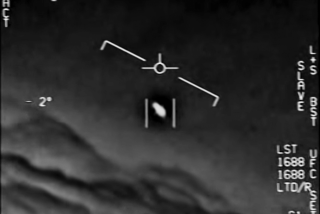BOOK REVIEW : Book Blaming Science for the World’s Woes Is Insightful, Frightening : UNDERSTANDING THE PRESENT: Science and the Soul of Modern Man <i> by Bryan Appleyard</i> ; Doubleday $23.50, 287 pages
- Share via
Bryan Appleyard, a columnist for London’s Sunday Times, explains in his preface to “Understanding the Present” that because “science is our faith and our signature” today, scientists have to be criticized more than anyone else in society and only a person such as he, a non-scientist, can do that.
As a fellow non-scientist who also happens to write about science, I have come face to face with the same arrogance he sees in some scientists (a trait not limited to their trade). But unlike Appleyard, I have turned against the messengers, not against what I understand as their message.
Appleyard’s gripe, in contrast, lies more with what he sees as the modern scientific message. He is unhappy that science claims to reveal “truth” when, in fact, scientific truth is always changing because science is by definition self-correcting and its theories are always open to revision.
“Understanding the Present” is a selective and idiosyncratic history of science, which Appleyard paints as a downward spiral from the moment Galileo gazed into his telescope and saw that the heavenly bodies weren’t where the Church said they were. After that, he would have it, scientists from Descartes to Darwin to Freud cast human beings out from the center of the cosmos to its periphery.
In other words, science set us adrift from the certainties of religious truth and left us bobbing alone with nothing to hold onto in a sea of anomie.
“Understanding the Present” is about religion. Appleyard would like it to be about Christianity in particular, but he never quite spells that out. Somehow, he seems to be saying, Christianity, from which modern science sprang, failed to assimilate the useful in science into its overall scheme.
Science had its appeal in the 19th Century, Appleyard admits. Many people had come to accept its worldview because its handmaiden--technology--worked. We may not “see” electricity or magnetism, but we do see our appliances whirring after we plug them in. They illustrate the laws of physics in action.
But come the 20th Century, he complains, the new physics of quantum mechanics tossed classical physics into the trash bin (a position most scientists would claim to be a wrong-headed exaggeration).
Quantum mechanics works, too: Witness lasers and semiconductor devices including transistor radios and personal computers. But Appleyard is upset that its theories can’t be understood by anyone not mathematically sophisticated and so must be accepted by most people on faith.
Moreover, they paint the picture of a universe where human beings may be only incidental, or even accidental, presences.
No wonder our culture is rife with despair, child abuse and a total social breakdown. Just look at the sterile pessimism of contemporary art, he admonishes. This is where science has brought us.
Appleyard covers a great deal of territory in “Understanding the Present,” including the anthropocentric principles (theories that argue from the existence of human intelligence that the universe is arranged physically for us to be here), environmentalism (a movement Appleyard rejects as a form of Ludditism) and ecology (which says that humans are simply part of nature).
Appleyard believes it is self-evident that we are altogether different from other forms of animal life.
A bestseller in England, “Understanding the Present” is a response to the enthusiastic reception of books by scientific popularizers like Stephen Hawking and Carl Sagan. It is well-written and occasionally insightful, but I found its conclusion both vague and frightening.
It is vague because Appleyard doesn’t call for anything more precise than a shift of emphasis from matters scientific to matters of the soul. “The answer lies in finding a belief in all of what we are, or perhaps in simply admitting what we are.”
It is frightening because although his subject is ostensibly science, he equates science with liberalism and liberalism with tolerance.
There is, of course, a certain logic to the idea that admitting the coexistence of more than one truth means that there is no single truth. But this is the logic of those mullahs and priests who are responsible for as at least as much bloodletting as the scientists he berates.
More to Read
Sign up for our Book Club newsletter
Get the latest news, events and more from the Los Angeles Times Book Club, and help us get L.A. reading and talking.
You may occasionally receive promotional content from the Los Angeles Times.









